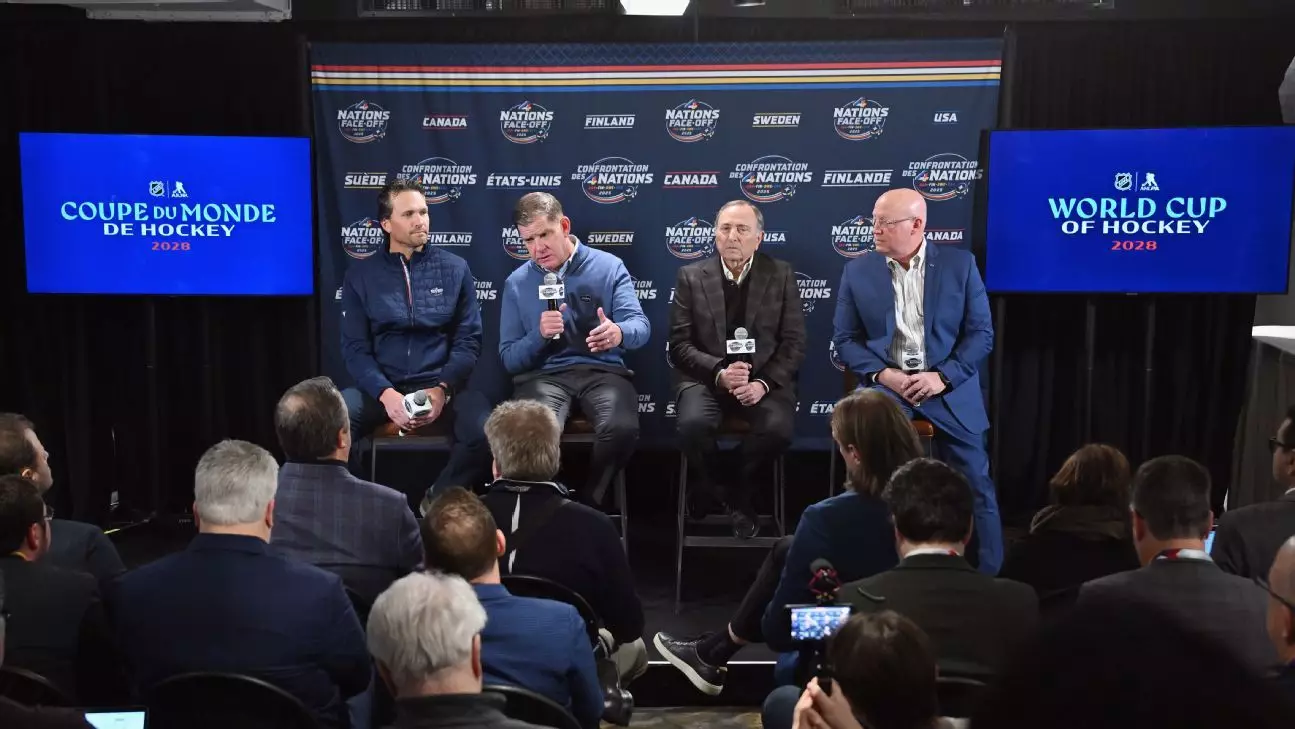The World Cup of Hockey is poised for a sensational comeback in February 2028, a revelation made by NHL Commissioner Gary Bettman alongside NHLPA Executive Director Marty Walsh during a recent press conference. This announcement heralds a new era of international hockey competition, reinstituting the cycle of elite matchups every two years. With the commitment to include NHL players in the Winter Olympics in 2026, hockey fans can expect to witness the world’s best talents competing on the international stage far more frequently than in the past.
NHL players have not graced the Olympic rink since the Sochi games in 2014. The remnants of the hiatus were keenly felt, particularly with superstars such as Connor McDavid and Auston Matthews voicing their eagerness to represent their countries when it truly counts. The new schedule ensures that these athletes will finally have the chance to showcase their skills in both the Olympics and the World Cups, reinstating the excitement surrounding international hockey. Commissioner Bettman voiced his optimism, stating, “We couldn’t be more excited about making a reality: Olympics, World Cups, Olympics, World Cups on a regular schedule of the best hockey players in the world.”
This enthusiasm for the return of elite international competition is palpable, but its success hinges on careful coordination between the NHL and the NHLPA, particularly as they navigate issues concerning player representation and international relations.
With the announcement of the World Cup of Hockey’s return, discussions are set to commence on potential host cities for 2028. Bettman indicated that cities in Europe would also be considered, which enhances the tournament’s global reach. The precise format of the tournament is yet undecided; however, Bettman anticipates a minimum of eight participating nations. Importantly, the revised tournament will revert to a more traditional format where teams consist solely of players representing their respective countries, as opposed to the mixed national teams seen in prior competitions.
This change will undoubtedly foster a heightened sense of national pride among players and their fans. The absence of combined teams like Team Europe or Team North America ensures that players will don their national colors, rekindling the intense rivalries that have historically characterized international hockey.
One of the more compelling yet contentious issues surrounding the upcoming tournament is the participation of Russian athletes. Due to geopolitical tensions stemming from the invasion of Ukraine, Russian teams have been banned from international events across all age categories, including the NHL. This ban has raised questions regarding the involvement of some of the league’s most celebrated players. The NHL extended this ban recently, a decision that continues to spark debate about the political dynamics at play in the world of sports.
NHLPA Executive Director Walsh has expressed a desire for Russian players to return to the international fold, stating, “I’d love to see our Russian players playing in these tournaments. Again, they’re incredible hockey players.” However, the pathway back for these athletes is riddled with complexities, largely dictated by political developments rather than purely sporting considerations.
The recent announcements regarding the World Cup of Hockey signify more than just a return to international play; they also illustrate a maturing relationship between the NHL and the NHLPA. Following a period of strain, the entities are now poised to engage in negotiations for a new collective bargaining agreement (CBA), which coincides with the conclusion of the current CBA in 2026. Bettman’s assertion that he remains “more than optimistic” about these negotiations underscores a collaborative spirit between league officials and player representatives.
As Bettman emphasized, all international competitions involving NHL players will be the result of a partnership with the Players Association. This collaboration is vital for the successful execution of future events and fosters an atmosphere of trust and mutual respect, enabling the NHL to retain its position as a leader in international hockey.
As preparations for the World Cup of Hockey heat up, anticipation builds among fans and players. The promise of high-stakes competition featuring the world’s elite players—now it can properly become a reality every two years—marks a renewed commitment to international hockey. Whether political barriers can be surmounted to allow for the participation of all deserving athletes remains to be seen. However, what is clear is that the NHL, along with the NHLPA, is fully invested in revitalizing hockey on the world stage, setting the premise for an exhilarating chapter ahead in the world of professional hockey.


Leave a Reply